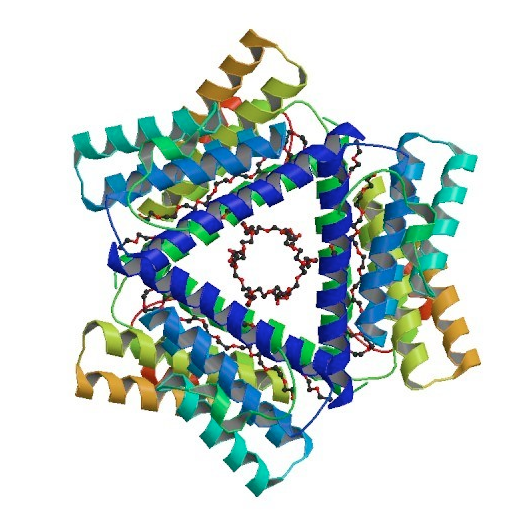SAA (Serum Amyloid A) in Veterinary Diseases: A Critical Diagnostic Tool
This is an acute phase protein and is elevated during inflammation or infection of the body system. Thus, increased SAA level is beneficial for detecting infection, chronic inflammation, tissue damage.
| Catalog No. | Products Name | Detected Species | Products Information |
| GMP-BOV-Serum-amyloid-A-Ag | Bovine Serum amyloid A | Bovines/Cattle | Details |
| GMP-BOV-Serum-amyloid-A-Ab | Anti-bovine SAA protein monoclonal antibody (mAb) | Bovines/Cattle | Details |
| GMP-CAN-Serum-amyloid-A-Ab | Anti-Canine Serum amyloid A monoclonal antibody (mAb) | Dog/Canine | Details |
| GMP-CAN-Serum-amyloid-A-Ag | Serum amyloid A | Dog/Canine | Details |
| GMP-EQU-Serum-amyloid-A-Ab | Anti-Equine SAA monoclonal antibody (mAb) | Equine/Horse | Details |
| GMP-EQU-Serum-amyloid-A-Ag | Serum amyloid A | Equine/Horse | Details |
| GMP-FEL-Serum-amyloid-A-Ab | Anti-Feline Serum amyloid A monoclonal antibody (mAb) | Cat/Feline | Details |
| GMP-FEL-Serum-amyloid-A-Ag | Serum amyloid A | Cat/Feline | Details |
Validation data
GeneMedi’s anti-SAA monoclonal antibodies demonstrate superior performance in immunoassay.
GeneMedi’s monoclonal antibodies for SAA (Serum Amyloid A) offer high sensitivity for detecting SAA in cat, dog, and horse serum. Due to the high sequence homology among these species, the same antibody pairs can be used to develop versatile sandwich immunoassays. As a result, GeneMedi’s anti-SAA antibodies provide a valuable tool for accurately monitoring and diagnosing inflammatory conditions across multiple species.

Figure 1. GeneMedi’s monoclonal antibodies demonstrate high sensitivity and specificity for detecting SAA in both healthy and inflammatory cat plasma samples using a sandwich immunoassay.
A. Calibration curve for GMP-FEL-Serum-amyloid-A-Ag01 in mixed cat plasma in the sandwich immunoassay. The SAA concentration in mixed cat plasma was 145 μg/ml, and the sample was diluted 208 times prior to testing.
B-C. Dilution curves for recombinant cat SAA antigen and plasma samples using the prototype reagents in the sandwich immunoassay. (B) Healthy cat samples (H1, H2), with SAA concentrations of 0.67 μg/ml and 0.45 μg/ml, respectively. Plasma samples were diluted 45 times before testing. The initial concentration of GMP-FEL-Serum-amyloid-A-Ag01 was 65 ng/ml. (C) Postoperative cat samples (P1, P2), with SAA concentrations of 169 μg/ml and 220 μg/ml, respectively. Plasma samples were diluted 200 times before testing. The initial concentration of GMP-FEL-Serum-amyloid-A-Ag01 was 200 ng/ml.
D. SAA concentrations in healthy and postoperative inflammatory cats. Healthy cat samples were pre-diluted 100-3000 times, while inflammatory cat samples were pre-diluted 9000 times prior to testing.

Figure 2. GeneMedi’s anti-SAA monoclonal antibodies enable sensitive detection of SAA in dog, horse, and cat serum using a sandwich immunoassay.
A-B. Dilution curves of recombinant dog (A) and horse (B) SAA antigens in the sandwich immunoassay. GMP-CAN-Serum-amyloid-A-Ab01 was coated and blocked at 37°C for 1 hour, and incubated with GMP-CAN-Serum-amyloid-A-Ag01 and GMP-EQU-Serum-amyloid-A-Ag01 at 37°C for 1 hour.
C. The recommended antibody pairs.
D-E. Comparison of SAA detection results between diseased and healthy individuals in dogs (D) and horses (E) in the sandwich immunoassay. Healthy serum was pre-diluted 50 times, while diseased serum was pre-diluted 1500 times (horse) or 2500 times (dog), with the dilution buffer containing 1% casein and 0.05% Tween 20.
F-H. Testing results of SAA in cat (F), dog (G), and horse (H) serum samples in the sandwich immunoassay. GMP-FEL-Serum-amyloid-A-Ab10 was blocked for 1 hour (blocking solution containing 2.5% sodium caseinate). Dog serum was pre-diluted 2500 times, while cat and horse serum were pre-diluted 1500 times, using a Tris buffer containing 0.01% CHAPS.
Understanding SAA: A Marker of Inflammation in Pets
Serum Amyloid A (SAA) which respond to Synonym inflammation, infection, trauma, or stress in animals by raising to a significantly high level. This protein is synthesized mainly in the liver and is used as an indicator for diagnosing acute inflammation in various animals such as horse, dogs, cat, and cattle.

The Role of SAA in Identifying Diseases Across Animal Species
SAA production increases rapidly within hours of an inflammatory event and decreases almost as swiftly in response to inflammation resolution, which makes the concept of SAA levels a very specific and dynamic one in relation to acute changes in an animal’s health condition.Due to its rapid response to inflammatory stimuli, SAA is particularly useful for:
(1) Early diagnosis hence points to the detection of diseases and infections before clinical signs manifest themselves.
(2) SAA levels may be used for assessing the advancement of the diseases or the efficacy of treatments as changes in concentrations can be indicative of the therapy session results.
(3) Evaluating surgical recovery and identification of other situations that may trigger inflammation after surgery.
In veterinary practice, measuring SAA levels can aid in the diagnosis and management of various conditions, including:In veterinary practice, measuring SAA levels can aid in the diagnosis and management of various conditions, including:
(1) Infections, parasitic and those caused by bacteria and viruses.
(2) Arthritis- condition affiliated with inflammation.
(3) Lastly, there are certain diseases that induce worldwide inflammation such as sepsis.
CONCLUSION: SAA analysis is normally done through blood sample tests and the tests used are specific immunoassays of animal species. Due to SAA involvement in the acute phase, the role of this protein has been useful in the diagnosis of the presence and severity of inflammation in animals and the consequential management of the disease as identified from the test results.
| Animals | Normal Range | Possible Diseases Listed | Specimens/Biofluids | Measurement Method |
|---|---|---|---|---|
| Cat | <10 µg/mL | Infections, Inflammatory Diseases, Neoplasia, Trauma | Blood | Immunoassay |
| Dog | <10 µg/mL | Infections, Inflammatory Diseases, Neoplasia, Trauma, Autoimmune Disorders | Blood | Immunoassay |
| Horse | <20 µg/mL | Infections, Inflammatory Bowel Disease, Respiratory Diseases, Post-surgical Inflammation | Blood | Immunoassay |
| Cattle | <20 µg/mL | Mastitis, Metritis, Respiratory Infections, Septicemia | Blood | Immunoassay |
- GENEMEDI
- Email: [email protected] [email protected]
- Telephone: +86-21-50478399 Fax: 86-21-50478399
- Privacy Policy
- TECHNICAL SUPPORT
- Product FAQs
- Technical manuals
- Publications
- Email: [email protected]








 Facebook
Facebook LinkedIn
LinkedIn Twitter
Twitter